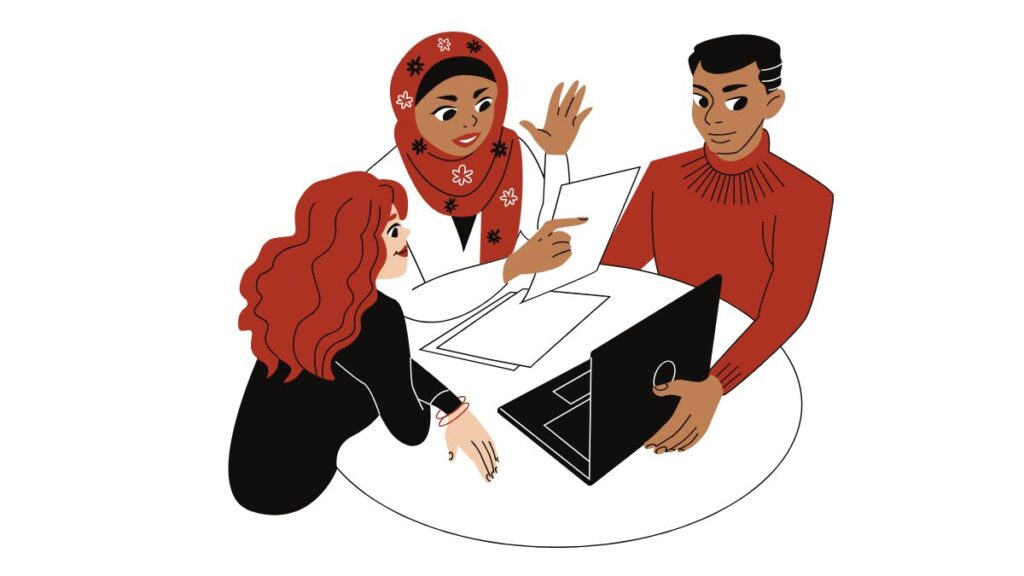Feeling Stuck? 8 Signs You’re in the Wrong Career

Have you ever stared blankly at your computer screen, questioning all your life choices? If you’ve been feeling trapped in a job that drains your soul, you’re definitely not alone.
I used to think everyone hated their job. That the Sunday Scaries and living for the weekend was just normal adult life.
But then I realized something: work doesn’t have to suck.
Some people actually enjoy their careers. Crazy, right? 😱
If you’re nodding along right now, wondering if you’re stuck in the wrong career path, let’s figure it out together. I’ve compiled the most common red flags that scream “this isn’t the right job for you” – plus what to do about it.
12 Signs You’re in the Wrong Career (And What to Do About It)
The Warning Signs You Can’t Ignore

1. Your mental health is taking a serious hit
We all have stressful days at work. That’s normal. What’s not normal is when your job leaves you constantly anxious, depressed, or burnt out.
According to the American Psychological Association, chronic work stress can lead to serious health problems including heart disease, diabetes, and depression. If you find yourself:
- Crying on Sunday nights
- Having panic attacks before meetings
- Feeling constantly on edge
Your body is telling you something important. Listen to it. 🚨
2. You’re experiencing weird physical symptoms
Your body keeps the score. When you’re in the wrong career, your physical health often pays the price.
Do any of these sound familiar?
- Constant headaches or stomach problems
- Grinding your teeth at night
- Getting sick more often than usual
- Never having energy (even after 8 hours of sleep)
When your job is literally making you sick, that’s not “paying your dues” – that’s your body waving a giant red flag.
3. You’ve completely mentally checked out
Remember when you used to care about the quality of your work? Yeah, me neither. 😅
Disengagement is a major sign you’re in the wrong role. When you find yourself:
- Going through the motions without any real effort
- Not caring about mistakes or outcomes
- Avoiding work responsibilities whenever possible
- Feeling completely disconnected from company goals
You’re experiencing what psychologists call “presenteeism” – physically present but mentally absent.
4. You constantly daydream about other careers
During meetings, do you fantasize about becoming a:
- Coffee shop owner
- Yoga instructor
- Digital nomad
- Literally anything else than what you’re doing?
This isn’t just normal workplace boredom. Your mind is trying to show you alternatives that might better align with who you really are.
According to career development experts at Stanford, these daydreams often contain important clues about your true calling.
5. You’re bored out of your mind
Not all jobs are thrilling roller coasters of excitement. But if you’re staring at the clock by 9:15 AM every single day, something’s wrong.
Chronic boredom at work is soul-crushing. It means either:
- Your talents are being wasted
- You’re not being challenged enough
- The content of the work doesn’t interest you
- All of the above
Humans need purpose and challenge to thrive. If your job offers neither, it’s probably the wrong fit.
6. You get the Sunday Scaries (but like, REALLY bad)
We all know that sinking feeling when the weekend is ending. But if your Sunday anxiety has you:
- Unable to enjoy your time off
- Physically ill with dread
- Already stressed about Friday at 9 AM Monday
Then you’re experiencing something beyond normal work reluctance.
7. You’re always watching the clock
If you find yourself checking the time every 10 minutes like it’s your job (more than your actual job), that’s a problem.
Time moves differently when you’re in the right career. Hours can fly by when you’re engaged and challenged. If your days feel like they’re dragging on forever, your career might not be the right match.
8. Your talents are collecting dust
Everyone has natural strengths. Maybe you’re:
- Amazing with people
- Great at solving problems
- Naturally creative
- Analytically brilliant
If your current job doesn’t let you use any of your superpowers, it’s like having a Ferrari and only driving it in first gear. What a waste! 🏎️
9. You’ve hit a ceiling with nowhere to grow
Feeling stuck is one of the worst feelings in a career. If you’ve maxed out your learning, advancement, or salary potential with no path forward, your career might have reached a dead end.
According to a Pew Research study, a lack of advancement opportunities is one of the top reasons people quit their jobs.
10. You feel jealous when friends talk about their work
Be honest – does hearing about your friend’s exciting project or work accomplishment make you feel:
- Happy for them?
- Or secretly bitter and jealous?
If it’s the latter, you’re not a bad person. Your emotions are telling you something important: you want that feeling too.
11. Work drains every ounce of your energy
After work, do you have energy to pursue hobbies, exercise, or socialize? Or do you collapse on the couch, emotionally and physically depleted?
The right career should take energy but also give it back through satisfaction and purpose. If you’re constantly running on empty, something’s wrong.
12. You literally dread going to work every single day.
Let’s face it – occasional dread is normal. But constant dread is a blinking neon sign that you’re in the wrong place.
Work doesn’t have to be your passion, but it shouldn’t be something you actively hate either. Life’s too short for that.
What to Do If You’re in the Wrong Career

1. Get real with yourself
First, take a deep breath. Then ask yourself:
- Is it the job, the company, or the entire career path?
- What specific aspects make me miserable?
- What would an ideal workday look like for me?
Sometimes it’s not the entire career that’s wrong, but just certain elements that could be fixed with a job change vs. a complete career overhaul.
2. Start exploring alternatives
Don’t quit tomorrow without a plan (unless your mental health absolutely requires it). Instead:
- Research careers that match your interests
- Take personality and career assessments
- Talk to people in fields you find interesting
- Try side projects to test your interests
According to Harvard Business Review, most successful career changers take small experimental steps before making a full transition.
3. Level up your skills
Identify what skills you need for a potential new path and start building them:
- Take online courses
- Get certifications
- Volunteer for projects that build relevant experience
- Find a mentor in your target field
Remember that many skills are transferable between careers. You’re not starting from zero!
4. Create a transition roadmap

Rome wasn’t built in a day, and neither is a career change. Map out:
- Short-term goals (next 3 months)
- Medium-term goals (6-12 months)
- Long-term vision (1-5 years)
Be patient with yourself. Career transitions typically take 6-18 months, depending on how dramatic the change.
5. Get professional help
Consider working with a:
- Career coach
- Therapist (if anxiety/depression is severe)
- Resume writer
- Industry mentor
Sometimes outside perspective makes all the difference. A LinkedIn survey found that 80% of people who successfully changed careers had support from mentors or coaches.
Life’s too short to spend it in a career that makes you miserable. The average person spends 90,000 hours working over their lifetime. That’s way too long to be counting down the minutes until 5 PM.
The good news? It’s never too late to change. I’ve seen people make successful pivots in their 30s, 40s, 50s, and beyond.
The biggest regret I hear from people isn’t changing careers – it’s waiting too long to do it. 🕰️
So if the signs above resonated with you, take it as permission to start exploring a path that might bring you more joy. Future You will thank you for it.

